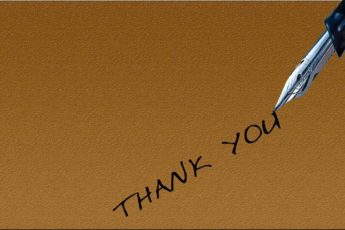
READING TIME: 3 MIN
It’s now a cliché to say it takes a village to raise a child, but in no case is it truer than with a child born with disabilities. Our village has become multi-faceted over two decades.
In the early years, our community was made up of medical professionals. Gabriella’s birth left us blindsided, but an intuitive nurse helped me through the first few hours while my wife recovered from her Cesarean. Suddenly faced with the unexpected, we relied on her pediatrician and a few specialists as we navigated dehydration and cataracts and clubfoot surgery and a tumor on her skull. Even today, I become nostalgic when I meet one of those early mentors on our unlikely journey.
As our daughter’s health stabilized, our team evolved. Lisa took her each week to Early Intervention, where she worked with a special education teacher and a nurse and three therapists (PT, OT and speech). We found the same model at Lakeview School, where the staff helped Gabriella blossom with dedication and patience. Lakeview also introduced us to a community of parents facing similar challenges, an invaluable resource for the scary times.
When she turned 21, Gabriella aged out of school. In New Jersey, adult programs (it’s still hard sometimes to think of her as an ‘adult’) are county-based. We’re fortunate that Monmouth County provides good alternatives. She takes part in a day program that offers a community feel, and we are thrilled that she has now moved into a room led by a former special ed teacher that provides an atmosphere much like a classroom. Again we’ve met a group of administrators, therapists and families that has widened our circle.
On weekdays, Gabriella’s nurses come early, get her ready, spend the day with her, and then transition her back into the home environment. On weekends, they arrive later and care for her until bedtime. In all cases, they manage her medical needs. Our daughter forms an attachment to many of these women, which makes it more challenging to replace them when their careers and circumstances change. Three weeks ago, we were discussing how pleased we were with her four nurses; then two had changes in their situations. As has often happened, we are again working on identifying and training new nurses, recognizing that some might not pan out. But those that do become a vital part of her community.
Each April I participate on a panel of parents of kids with disabilities for future special education teachers. Over the years, I’ve heard other panelists discuss the state agencies responsible for managing benefits for disabled adults. What struck me was that the rules seemed always to be evolving. Now that Gabriella qualifies, we have experienced the system for ourselves. We work with a service coordinator who has helped us navigate the latest changes. One outcome is that because our daughter attends her program only four days per week, we have funding to put toward other activities. We are excited about an art session we’ve begun exploring.
Most important are our family and friends, most of whom have been with us since the beginning of our odyssey. Their love has provided the support we’ve leaned on in difficult times, and the camaraderie we’ve enjoyed when things have gone well.
All these medical professionals and educators and families and loved ones make up our village, and every village needs a mayor. For us, that has always been Lisa. For all those years I worked long hours, she coordinated all the different constituencies that make up Team Gabriella.
It says a lot about our society that so many have contributed to the care and development of this one special person.








Beautiful . No matter what the circumstances you can’t do anything alone, It takes a village. God Bless you.
Thank you, Trudy! You’re right, all of us are part of many villages.
Paul
Brava to the mayor, Lisa and to the village that has supported you! Your beautiful continues to unfold. Thank you. Nancy
Thank you, Nancy! I appreciate your support!